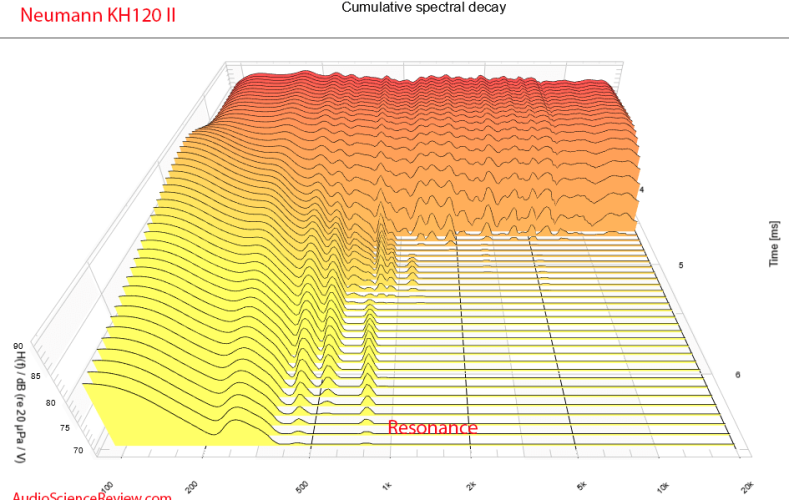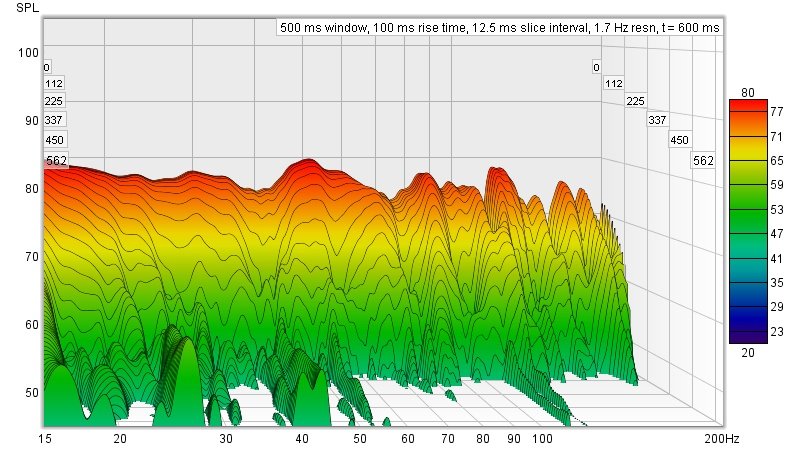An example of absolute to me is all you need to hear the sound of a headphone is measurements.
In a sense that is an absolute, it’s absolute nonsense! You again demonstrate that you are incapable of understanding the most simple of concepts, that the performance of something and your perception of it are two different things. That was literally the approach in the Dark Ages, why it is called the Dark Ages and why modern science was invented. Your problem is that you are using modern technology/science but trying to explain it with Dark Age thinking; ignoring, dismissing or simply unaware of the science and you’re doing that in a science discussion forum! A flip side of your argument is: Do you need audio in order to “
hear the sound of a headphones”? If so, then digital audio is itself a measurement!
Secondly, another example is all DACs that measure at or below audibility thresholds sound the same.
Assuming certain obvious conditions (level matching, reasonable listening levels, etc.) then if the differences measure “
below audibility thresholds” they are by definition inaudible and the definition of inaudible is that you as a human being cannot hear them. That is an absolute, an obvious one. Another obvious absolute is that if some distortion/fidelity issue is billions of times below the limit of acoustic sound, then it cannot exist as sound and any question of audibility must be complete nonsense!
Lastly, hearing is a fallacy and can NEVER EVER EVER be trusted. Those are absolutes lol
That is an absolute … absolute BS again! Hearing is NOT a fallacy, what IS a fallacy is the bolded part of the quote above, which apparently is one of your favourite fallacies, called the “Strawman Argument” fallacy. You’ve got a nerve trying to use a strawman argument in a science discussion forum and the fact you’ve actually bolded it, is just crazy!
Wanna see what how a good recording engineer who trained their ears for a living. See this post here:
https://www.head-fi.org/threads/raal-1995-immanis.971583/post-18688388
Why would I “
wanna see what how a good recording engineer who trained their ears for a living” when I am one, when I’ve worked with countless others, some of whom weren’t just good but were world class? Even more bizarrely, your link does NOT even lead to us being able to “see … a good recording engineer”, it leads to an anecdote, by a marketer, about an engineer. Again, that’s just crazy, devoid of any hint of rational/critical thinking; an anecdote by a marketer is apparently evidence which you obviously accept but objective measurements and proven science, no way! And if that’s not already enough demonstration of a lack of rational thought, you’ve also employed another fallacy, “cherry picking”! Your own cited source completely contradicts your claim: “
This is a reply to "our ears are most fallable sense" post that was deleted. … While that is true, it's not so bad if one has a lot of practice and keeps working on it.” - Your own source agrees that hearing/our ears are our most fallible sense. Did you accidentally miss that part, despite it being the very first two sentences in the post you cited?!!
Strictly speaking of frequency range up to 4KHz, do you believe this FR graph would make you think the Hola sound the same as APX SE on bass guitar, cello, lower octave piano, pipe organ (not being played at higher octaves of course) that does not have musical information above 4KHz?
Your premise doesn’t make sense to start with! Not having “
musical information above 4kHz” depends on how you define “musical information” because it’s a subjective and somewhat ambiguous term. All the instruments you listed can/do have actual audio information above 4kHz! I won’t bother refuting this false assertion any further as
@castleofargh has just posted and covered it well.
G
















